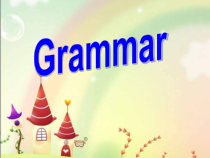 PPT
PPT
【文档说明】《定语从句》PPT课件2-九年级上册英语【牛津译林版】.ppt,共(86)页,6.990 MB,由小喜鸽上传
转载请保留链接:https://www.ichengzhen.cn/view-102759.html
以下为本文档部分文字说明:
定语从句什么是定语?•Ilikethepen.•Whichpen?redWeuseadjectivestodescribesomeoneorsomething.定语从句一个句子充当定语•Ilikethepen.•(whichone?)
•Thepencostme10yuan.•Ilikecostme10yuan.which/that↑先行词↑关系代词关系代词就是用来代替先行词的thepen=which/thatThepenthepen.Weuseasentencetodescribesomeoneors
omething.关系代词用法小结:PeopleThingswhowhichthat√√√√××Conclusion1Mydadhasafriendwho/thatisgoodatEnglish.Attributive
clause关系代词who/that为引导词,在从句中代替friend.先行词先行词:是被定语从句所修饰的词,通常是名词或代词。关系代词:是引导定语从句的词,在从句中替代先行词。注意:从句必须紧跟在先行词后。….先行词(名词/代词)+关系代词(w
ho/whom/which/that)+….Theboywhoisplayingping-pongismyclassmate.■Ilikethesingerwho/thatdanceswell.■Theboywho/thatyoumetyesterday
ismyclassmate.■Welikethemusicwhich/thatisquietandgentle.■Thisisthepresentwhich/thathegavemeformybirthday.Workinpairs关系代词指代什么?Conclusi
on1.关系代词who/which/that在定语从句中可以充当主语或宾语。2.关系代词who/which/that在定语从句中作宾语时,可以省略,做主语时,不能省略。1.Idon’tliketheman.Themaniss
moking.Idon’tliketheman____________________.2.Thegirlismysister.Wesawherjustnow.Thegirl_________________________
ismysister.3.I’mreadingabook.ThebookisaboutMaYun.I’mreadingabook________________________.4.Theyaretalkingabouttheconcert
.Theyattendedityesterday.Theyaretalkingabouttheconcert____________________________________.Workinpairswho/thatissmokingwho/thatwesawjustnowwhich/th
atisaboutMaYunwhich/thattheyattendedyesterday.//有时只能用that,不用which,常见的情况有六种:1.当先行词是all,any,few,little,none,anything,e
verything,nothing,everybody,nobody,everyone,noone或被它们修饰时。That’sallthatIknow.IsthereanythingthatIcando
foryou?Heansweredfewquestionsthattheteacherasked2.当先行词被形容词最高级或序数词修饰时ThatisthemostinterestingbookthatIhaveeveread.ThefirstthingthatIshoulddoistoreview
mylessons.3.当先行词有thevery,theonly,thesame等修饰时。That’stheonlythingthatIcandonow.Thesearetheverywordsthatheused.4.当主句以who或which开头时,定语从句的关系词用that,
而不用which或who.Whoisthegirlthatspoketoyoujustnow?Whichisthepenthatyoulost?5.先行词同时包括人或物时,关系词用that.ThemanandhisdogthatIalwaysmeetarestandingbythegate
.宾语从句什么是宾语从句宾语从句的语序宾语从句的时态宾语从句的连接词我们知道姚明WeknowYaoMing.我们知道他是一个著名的篮球运动员Weknow宾语从句就是由一个句子来构成主句的宾语,并有一个连接词引导。一什么是宾语从句?试比较宾o宾o主s谓v
heisafamousbasketballplayer主s谓v宾othat连接词我们知道他是一个著名的篮球运动员谓v主s有哪些句子可以做宾语?•1.陈述句,heisafamousbasketballplayer•2.一般疑问句,Willourteach
ersattendthemeeting?•3.特殊疑问句,whichcoatdidyouprefer?注:当宾语从句是陈述句时,用that连接从句。that在句中无词汇意义,在从句中不能充当成分,在口语当中往往省略。e.g.1.Ihear(that
)_______________________.(一小时后他会回来)2.Hesaid(that)______________________.(他非常想念我们)hewillbebackinanhourhemissedusverymu
ch由连词whether,if引导的宾语从句e.g.1.Askhim_____________________.(他是否能来)2.Idon’tknow____________________.(是否要下雨)whether(if)hecancomewhetheritisgoi
ngtorainornot当句末为ornot时,引导词只能用whether而不能用if.注:当宾语从句是一般疑问句时,用if/whether连接从句,意思是是否,注意要将一般疑问句改为陈述语序。If与whether的区别1.Idon’tknow___
__hewillcomeornot.2.Idon’tcareof______heishandsome.3.Hewondered______tostayherethenextweek.4.____hewillcomeisnotdecided.与ornot连用只能用whether介词后只能用whet
her与todo不定式连用只能用whether作主语只能用whether我想知道你最喜欢那一条领带?特殊疑问句做宾语特殊疑问句做宾语我想知道你最喜欢哪一条领带?Whichtiedoyoulikebest?特殊疑问句变成陈述语
序连接词就是疑问词本身IwonderIwonderwhichtieyoulikebest?(一)宾语从句的语序句子的两种语序:1.陈述句结构叫陈述语序2疑问句结构叫疑问语序宾语从句必须用________陈述
语序Thereisashopnearhere.Isthereashopnearhere?练习:将下列句子改成陈述句语序:1.Isthereabanknearhere?2.IsitonFifthAvenue?3.Aretheydoinghomework?ThereisabanknearhereI
tisonFifthAvenueTheyaredoinghomework4.Doessheworkinahospital?5.DidyougotoCenterPark?6.Dowehavetowearauniform?sheworksinahos
pitalyouwenttoCenterParkwehavetowearauniformwecanwearhatsinschool7.Canwewearhatsinschool?8.Where’syourpenpalfrom?9.Wheredoeshelive?10.Whatlanguag
edoesshespeak?11.Whydoyoulikepandas?WhereyourpenpalisfromWherehelivesWhatlanguageshespeaksWhyyoulikepand
as宾语从句中时态的变化Ihear(that)Jim_______(be)aworkertwoyearsago.Jim(be)anEnglishteachernow.Jim(cook)dinnertomorrow.Jim(si
ng)apopularsongnow.Jim(be)totheGreatWalltwice.Jim(play)basketballwhenhisfathercameback.Jim(learn)1000Chinesewordsbytheendoflastsemester.填一填wasiswi
llcookissinginghasbeenwasplayinghadlearned1.当主句是一般现在时,宾语从句的时态不作限制,我们可以根据句子的需要使用任何一种时态。(需要性原则)2.当主句是一般过去时的时候,宾语从句必须运用相应的过去的某一种时
态,从而达到主句和从句的相互一致。(呼应性原则)1)HewillgotoHongKong.2)Heissick.3)Heisreadingabook.4)Hehasfinishedhiswork.1)He_________HongKong.2)He_____sick.3)He___________
abook.4)He____________Hesaid辨一辨wouldgowaswasreadinghiswork.hadfinished3.当宾语从句说明的是客观存在的事实或者是客观存在的真理时,就不用受到主句时态的限制,仍是
用一般现在时态。(特殊性原则)ATTENTIONHetoldme(that)SummerafterSpring.isIwastold(that)thesunmuchbiggerthanthemoon.isthesunmuchbiggerthanthemoon.nonewsgoodne
ws.Myparentstoldme(that)is确定从句的时态(根据主句时态)主句时态从句时态连接前连接后一般现在时时态保持不变一般过去时一般现在时一般过去时一般过去时过去完成时一般将来时过去将来时现
在进行时过去进行时现在完成时过去完成时宾语从句三要素引导词that(陈述句)if/whether(一般疑问句)特殊疑问词(特殊疑问句)时态主句为一般现在时从句可为任何时态主句为一般过去时从句一般过去时过去将来时过去进行时过去完成时语序
宾语从句的语序都为陈述句语序客观真理自然现象公式定理名言警句时态不变小结PassiveVoice语态是动词的一种形式,表示的是主语和谓语之间的关系。英语中的语态有两种:主动语态和被动语态。当主语是谓语的执行者时,用主动语态。当主语是谓语的承受者时,用被动语态。汉语中常
用“被,给,由,受”等词来表示被动,而英语中则用“be+动词的过去分词”来表示。Example:Wecleantheclassroomeveryday.我们每天都打扫教室。Theclassroomiscleaned(byus)everyday.教室每天都被(我们)打扫。1.被动语态的概念P
resentation2.一般现在时的被动语态的结构肯定句:主语+am/is/are+过去分词+其他.Example:Englishistaughtbyhim.否定句:主语+am/is/are+not+过去分词+其他.Example:Englishisn’ttaughtbyhi
m.一般疑问句:Am/Is/Are+主语+过去分词+其他?Example:IsEnglishtaughtbyhim?特殊疑问句:疑问词+am/is/are+主语+过去分词+其他?Example:WhoistaughtEnglishbyhim?3
.一般过去时的被动语态的结构肯定句:主语+was/were+过去分词+其他.Example:Thebridgewasbuiltin1999.否定句:主语+was/were+not+过去分词+其他.Example:Thebridgewasn’tbuiltin1999.一般疑问句:Was/Were+主
语+过去分词+其他?Example:Wasthebridgebuiltin1999?特殊疑问句:疑问词+was/were+主语+过去分词+其他?Example:Whenwasthebridgebuilt?主动语态变被动语态第一步:主宾互换。第二步:谓语动词变为
“be+过去分词”,并通过be的变化来表达出不同的时态。第三步:“be+过去分词”+by+原主语。(有时by+原主语可省)第四步:时间、地点状语等保持一致。主变被四步曲被动语态变化步骤宾变主,主变宾,前加by动变被,看清be,结构分别be+pp.bymanyst
udents.ManystudentsstudyEnglish.EnglishisstudiedAttentionI.感官动词,使役动词,help——不定式前添加toa.感官动词see,hear,etcb.使役动词let,make,etcc.helphelpsb
(to)dosbbeseen/heardtodosthsbbelet/madetodosthsbbehelpedtodosthII.双宾语结构——主语为物,添加to/forHeteachesusEnglish.主语谓语间宾直宾注意:常把间接宾语(即sb)变为主语。Wearetaugh
tEnglish(byhim).若把直接宾语(即sth.)变为被动句的主语时,常在保留宾语前加to或for。Englishistaughttous(byhim).IV.短语动词——要完整•Theboy__________________.(常受到嘲笑)•Thechildren___
___________________.•(应该得到良好的照顾)isoftenlaughedatshouldbelookedafterwellV.不能用被动的情况1.vi.无被动happen,cost,die,begin/start(开始),finish(结束),rise,a
ppear2.linkv.联系动词无被动3.sellwell,growwell,writewell4.takeplace,breakdown,comeout1.Atrafficaccident________(happen)yesterday2.My
watch______________(breakdown)severaltimessofar.3.Whattime____themeeting____(begin)?4.It______(cost)100yuan.5.Watertheflowersoon,orit_____(
die).happenedhasbrokendownwillbegincostswilldieExercise把下列主动语态的句子变为被动语态,或把被动语态的句子变为主动语态。1.Tomeoftenhelp
sJennywhensheisintrouble.JennyisoftenhelpedbyTomwhensheisintrouble.2.Iboughtacomputerlastweek.Acomputerwasboughtbymelastweek.3
.ThewholecakewaseatenbyEddieyesterday.Eddieatethewholecakeyesterday.4.Manytreesareplantedbystudentsandteacherseveryyear.St
udentsandteachersplantmanytresseveryyear.5.Shetakesgoodcareofthechildren.Thechildrenaretakengoodcareofbyher.被动语态的一般将来时用来描述将要发生的动作。如
:Hewillbe/isgoingtobetakentohospitalinafewminutes.他几分钟之内就会被送到医院。Thefoodwillbe/isgoingtobeeatenbythedogsoon.这些食物马上就会被狗吃掉。1.指代动物或无生命的东西。2.指代看不出性别
的婴儿和小孩。3.指代不知道的人。(尤指打电话和敲门的状态下)4.指代前文出现的动作、状况和主意。总结1it做人称代词有时并不指具体的东西,可指天气、气候、地点、温度、时间、距离、日期等。Itis6:30p.m.
Itisrainingheavilyoutside.Itis1Januarytoday.ItisNewYear’sDay.InBeijing,itiscoldandwindyinwinter.Itistwokilometresfrommy
schooltomyhome.总结2it做非人称代词Itisamazingthattherearesomanyrocksinunusualshapesinthecave.ItisimportantthatweshouldlearnEnglishwell.1)Itis+a
dj.+that从句总结3it做形式主语2)Itis+adj.+todosth.Itisverytiringtoclimbthesteps.Itispopulartohireabicycleandridearoundthecountryside.总结3it做
形式主语•a.Itiskind(ofsb.)todosth.主句中的形容词必须是能表示逻辑主语特征的形容词。•常见的有:bad,brave,careless,clever,cruel,foolish,stupid,wisewron
g等。•这个句型可以改写为:sb.iskindtodosth.。Itiskindofyoutosayso.=Youarekindtosayso.•b.Itisnecessary(forsb.)todosth.常见的形容词有:•important,nece
ssary,natural,easy,safe,common,normal,hard,difficult,dangerous,等。Itisimportantforhertocometotheparty.•3).Ittakes
sb....todosth.•"做...要花费某人..."IttookthousandsofpeoplemanyyearstobuildtheGreatWall.特殊句式4)Itis+v-ed+that从句Itissaid(reported,learned....
)that...据说(据报道,据悉...)“。ItissaidthathehascometoBeijing.Manypeoplefinditpleasanttotravelaround.Wethinkitimportanttolearnaforeignlanguage.该
句型中的it作形式宾语,主句中常用的动词:think,believe,make,find,consider,feel;总结4it做形式宾语Revisionforcomparativeandsuperlati
veadjectivesTask1—theusagesoforiginaladjectives(任务1---形容词原级用法)•Thisistheeasiesttask!Comeon!①Weusevery,too,so,quitetomodifyth
eoriginaladjectivessuchas:verytall、toohot、socold、quitelongThelittlepandaisquite/very.(可爱)Thepandavillageisvery/so.
(美丽)Commonsentencepatternsoforiginaladjectives(形容词原级常用句型)cutebeautifulas+adj.+as和...一样asfunnyasasbigasashappyasassmartasNegativeform(否定):notas+adj.
+as和…不一样;不如…notasinterestingas…notastallas…[ˈnegətɪv]adj.否定的Practice:功夫熊猫1和功夫熊猫3一样有趣。KungFuPanda1is___________KungFuPanda3.asinterestingas(1)
Wecanusethesewordstomodifycomparativeadjectives:much,alot,far……得多alittle,abit……点儿even甚至still仍然Task2—theusagesofcomparativeadjectives(任务2---形容词比较级用
法)阿宝的爸爸说道:“再试一次,你将会变得好得多。”Po’sDadsaid:“Tryagain,and___________________.”youwillbemuchbetter熊猫奶奶看上去比以前甚至更年轻了。GrandmaPandalooks_________________.even
youngerthanbefore(3)multiple(倍数)+comparativeadjectives+than....Kai’sQiis______________MasterOogway.天煞的气功功力是乌龟大师的三倍大。3timeslargerthan(4)wh-w
ords(特殊疑问词)+be+comparativeadjectives,AorB?•谁更强,天煞还是乌龟大师?•Whois________,KaiorMasterOogway?strongerTask3—theusage
sofsuperlativeadjectives(任务3---形容词最高级用法)(1)the+superlativeadjectives+of+people/things(in+place)Heis____
_________________.他是所有熊猫中最胖的。thefattestofallthepandas(2)the+ordinalnumeral(序数词)+superlativeadjectives+singularno
uns(单数名词)Thetigeris______________animalamongthem.老虎是他们中体型第二大的动物。thesecondbiggest(3)Oneof+the+superlativeadjectives+pluralnou
ns(复数名词)Heis____________________inhisvillage.他是村里最快乐的熊猫之一。oneofthehappiestpandas(4)“Wh-words(特殊疑问词)+be+the+superlativeadjectives+A,BorC?”tocompa
rethree(>3)peopleorthingsWhois_________,KuKu,MengMengorShuaiShuai?酷酷,萌萌还是帅帅,谁最高?thetallestTask4—idiomaticusagesofcomparati
ve&superlativeadjectives(任务4---形容词比较级和最高级的惯用法)•Themostdifficultpart!•Let’stryourbest!(1)“comparativeadjectives+and+comparat
iveadjectives”means“越来越……”他变得越来越强壮了。Heisgetting_________________.他变得越来越受欢迎了。Heisgetting_______________________.
strongerandstrongermoreandmorepopular(2)”the+comparativeadjectives,the+comparativeadjectives”means“越……,就越……”。你吃得越
多,你就会变得越胖。________youeat,_______youwillbe.Themorethefatter(3)“A+be+the+comparativeadjectives+ofthetwo(+……)”means“A是两者中较
……的”。看这两只小动物。兔子是两只中较矮的一只。Lookatthetwoanimals.Therabbitis________ofthetwo.theshorter(4)Whensuperlativeadjectivesmee
tmy/his/her/its…(物主代词)、’s(名词所有格)、this/that/these/those…(指示代词时),donotuse“the”。乌龟大师过去是天煞(Kai)最好的朋友。MasterOogwaywas_
___________inthepast.Kai’sbestfriend(5)comparepeoplewithpeople,thingswiththings(比较同类)。我的裙子比你的漂亮。Mydressis__________________.morebeautifu
lthanyours(6)Whenthethingsorpeoplethatwecomparebelongtothesamerange,weuse“anyother+singularnouns”。(当相比较的两者属于同一范围/类别时,
要用“anyother+单数名词”。)Whentheydon’tbelongtothesamerange,wedonotuse“other”,weuse“any+singularnouns”。(若两者不属于同一范围/类别时,不必用other,直接用“a
ny+单数名词”。)阿宝比Po村里的任何熊猫都聪明(在同一范围内)Poisclevererthan____________inhisvillage.阿宝比任何猴子都可爱。(不在同一范围内)Poislovelierthan___________.anyot
herpandaanymonkey•(7)Whenwecompare,weoftenusethat(单数、不可数名词)、those(复数名词)toreplacewhatwementionedtoavoidrepetition
.•有些含有比较级的句子里,常用that(单数、不可数名词)、those(复数名词)代替前面提到的词,以避免重复。熊猫村的天气比镇上的天气要冷。TheweatherinthePandavillageis_______________intown.colderthan他的饺子比
那家饭店的美味。Hisdumplingsare______________________inthatrestaurant.moredeliciousthanthose=Heisfatterthan____________.
(任何一只熊猫)Heisfatterthan____________.(其他熊猫)•(8)比较级和最高级句子转换=Heisthe____________.(最胖的熊猫)theotherpandasanyotherpandafattestpandaWhatwillyoudoifyousi
tonthebus?IfIsitonthebus,Iwillgivemyseattotheold.RevisionWhatwillhappentotheanimalsifwecutdownthetreesandforests?Ifwecutdownthetreesandforests,t
heanimalswillhavenowheretolive.Whatwillhappenifyoupickuptherubbishontheground?Theworldwillbemorebeautifulifwedos
o.Ourschoolwillbecleanerandcleanerifwedoso.用法相似:if,until,assoonas,when,after,before.1.Pleaseletmeknowassoonasyou______(arri
ve)heretomorrow.2.He_________(notgo)tobeduntilhisfathercomesback.3.Hewillgobackhomewhenhe_______(finish)thework.arrivewo
n’tgofinishes4.Hecametoseemeassoonashe_______(arrive)hereyesterday.5.He_______(notgo)tobeduntilhisfathercameback.6.Whentheduckgrewup,it___
____(grow)intoabeatifulswan.arriveddidn’tgogrewsincewhenever自从……引导时间状语从句的谓语动词用一般过去时,主句的谓语动词用现在完成时。每当;任何时候可以和everytime替换。
 辽公网安备 21102102000191号
辽公网安备 21102102000191号
 营业执照
营业执照